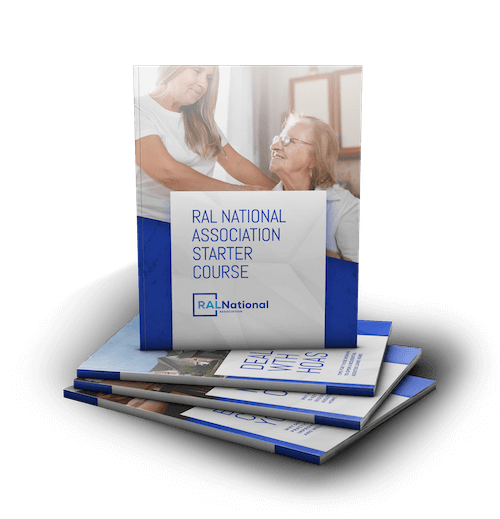[vc_row css_animation=”” row_type=”row” use_row_as_full_screen_section=”no” type=”full_width” angled_section=”no” text_align=”left” background_image_as_pattern=”without_pattern”][vc_column][vc_empty_space][vc_column_text]
What are the signs that your aging family member has Alzheimer’s disease or another form of dementia?
[/vc_column_text][vc_empty_space height=”16px”][vc_column_text]If mom appears to forget how to make her favorite dish or dad can never figure out where he parked the car, could this be a sign? Many years ago, terms like dementia and memory care didn’t exist. When people reached a certain age, if they exhibited certain behaviors associated with dementia-related symptoms, they may have been called “crazy” and admitted into institutions. However, now we know that there are over 400 different types of dementia, according to dementia awareness organization, Understand Together.[/vc_column_text][vc_empty_space height=”16px”][vc_column_text]Each dementia case has a different experience of symptoms. However, there are some cautionary signs that you should be aware of observing seniors in residential assisted living.[/vc_column_text][vc_empty_space height=”16px”][vc_column_text]
10 Signs of Alzheimer’s Disease and Dementia
[/vc_column_text][vc_empty_space height=”16px”][vc_column_text]
- Confusion and Short-Term Memory Loss
- Lack of Awareness and Increased Forgetfulness
- Misplacing Items
- Difficulty Performing Normal Tasks
- Communication and Language Issues
- Easy Calculation Issues
- Poor Decisions
- Character or Identity Changes
- Personal Care Issues
- Becoming Withdrawn
[/vc_column_text][vc_empty_space height=”16px”][vc_column_text]
CONFUSION AND SHORT-TERM MEMORY LOSS
[/vc_column_text][vc_empty_space height=”16px”][vc_column_text]The most common symptom regarding dementia is memory loss. Even though Mom can’t remember names well, or Dad often calls many family members by the wrong names, this is not necessarily dementia. We all have a lapse in memory on occasion.[/vc_column_text][vc_empty_space height=”16px”][vc_column_text]Early signs of the disease are when your loved one forgets an entire conversation that was just had. Alzheimer’s ultimately has an effect on your short-term memory. Therefore, things a person might have just learned could simply not be retained. Residents affected have a hard time remembering anniversaries or significant birthdays, even their own.[/vc_column_text][vc_empty_space height=”16px”][vc_column_text]
LACK OF AWARENESS AND INCREASED FORGETFULNESS
[/vc_column_text][vc_empty_space height=”16px”][vc_column_text]
Confusion about time and places are the second warning sign. Some are not able to concentrate and need assistance with Activities of Daily Living (ADL). This is why memory care in residential assisted living is a critical component. Navigation, conversation and participation can all become very difficult.
[/vc_column_text][vc_empty_space height=”16px”][vc_column_text]This type of increased confusion could lead to not being able to remember certain life events. Sometimes seniors suffering from dementia tangle events together when trying to remember things from the distant past.[/vc_column_text][vc_empty_space height=”16px”][vc_column_text]
MISPLACING ITEMS
[/vc_column_text][vc_empty_space height=”16px”][vc_column_text]A resident diagnosed with Alzheimer’s may start to leave items in the weirdest places. Remember, everyone loses things on occasion, but finding a shoe in the freezer could denote a more severe problem.[/vc_column_text][vc_empty_space height=”16px”][vc_column_text]These residents also have difficulty retracing their steps. This may cause paranoia which leads to an even more increased risk of losing items, attempting to hide things from the alleged thief.This third sign is quite obvious and trained caregivers know how to best help individuals suffering from these symptoms.[/vc_column_text][vc_empty_space height=”16px”][vc_column_text]
DIFFICULTY PERFORMING NORMAL TASKS
[/vc_column_text][vc_empty_space height=”16px”][vc_column_text]The fourth sign of the disease may halt a residents’ ability to make it through the day. It may become increasingly difficult to perform normal everyday tasks. It could be as simple as forgetting to place the car in park or not remembering how to play their favorite game. It is very frustrating. [/vc_column_text][vc_empty_space height=”16px”][vc_column_text]Your loved one may start depending more on a spouse or relative to do things. These early warning signs can also affect the residents’ vision – it’s important to be alert. Being able to gauge distance, depth perception, and visualizing colors are visual abilities that are sometimes lost.[/vc_column_text][vc_empty_space height=”16px”][vc_column_text]
COMMUNICATION AND LANGUAGE ISSUES
[/vc_column_text][vc_empty_space height=”16px”][vc_column_text]As the disease worsens, it affects how loved ones communicate. Most have difficulty remembering the right words – some have difficulties in spelling or writing. Some try to abbreviate or rename items while others create their own language. Pay attention to unfinished sentences and take note of incomplete conversations, this fifth sign is a frequent symptom of most seniors who suffer from dementia.[/vc_column_text][vc_empty_space height=”16px”][vc_column_text]
EASY CALCULATION ISSUES
[/vc_column_text][vc_empty_space height=”16px”][vc_column_text]The sixth sign is frightening for most and takes a professionally trained caregiver to provide support when the symptom occurs. Residents who are in the early stages of Alzheimer’s, calculating numbers become foreign. They forget the basics of how to add or subtract. What used to be as simple as balancing their checkbook, calculating the latest sale, or even understanding a utility bill can become an extremely difficult task.[/vc_column_text][vc_empty_space height=”16px”][vc_column_text]At residential assisted living homes these tasks are done for them to eliminate the added stress. Mathematics doesn’t come easy for everyone, however, the inability to conduct common math practices is a clear sign something more may be indicative.[/vc_column_text][vc_empty_space height=”16px”][vc_column_text]
POOR DECISIONS
[/vc_column_text][vc_empty_space height=”16px”][vc_column_text]Trained memory care professionals are more aware of the residents’ decisions. What may have been a conservative person could start showing signs of risky behavior. Seniors with dementia in residential assisted living are essentially protected from scammers and others who take advantage of these individuals.[/vc_column_text][vc_empty_space height=”16px”][vc_column_text]
CHARACTER OR IDENTITY CHANGES
[/vc_column_text][vc_empty_space height=”16px”][vc_column_text]Residents with dementia may have a sudden change in their character or personality. They could become paranoid, skittish, jumpy, or apprehensive. This eighth sign is a good indicator of the onset of the disease. They become easily perturbed and could be seen as intimidated by new surroundings.[/vc_column_text][vc_empty_space height=”16px”][vc_column_text]
PERSONAL CARE ISSUES
[/vc_column_text][vc_empty_space height=”16px”][vc_column_text]Unexpected changes in the personal care of a resident is another sign. When residents no longer desire to take showers, comb or brush hair, and perhaps may not change their clothes for days, caregivers help. These are all common indicators of Alzheimer’s and should give you pause for concern.[/vc_column_text][vc_empty_space height=”16px”][vc_column_text]
BECOMING WITHDRAWN
[/vc_column_text][vc_empty_space height=”16px”][vc_column_text]Lastly, sudden absences from social gatherings and events in the residential assisted living home are handwriting on the wall. Loss of excitement is a clear indicator. When a resident is aware that they are not 100% focused, it sometimes causes embarrassment and withdrawal, which can lead to depression if unattended.[/vc_column_text][vc_empty_space height=”16px”][vc_column_text]
Three Benefits Identifying Dementia Early
[/vc_column_text][vc_empty_space height=”16px”][vc_column_text]
- Medical Benefits
- Planning for the Future
- Cost Savings
[/vc_column_text][vc_empty_space height=”16px”][vc_column_text]
MAKE A PLAN FOR THE FUTURE WITH RALNA
[/vc_column_text][vc_empty_space height=”16px”][vc_column_text]The Residential Assisted Living National Association is advancing the industry with information that best serves the needs of senior care. Health and wellness is a vital part of the senior care journey and many RAL caregivers need resources to sharpen their skills.[/vc_column_text][vc_empty_space height=”16px”][vc_column_text]The landscape of residential assisted living is rapidly growing, and RALNA helps RAL businesses stay ahead of the game. Content at www.RALNA.com includes topics ranging from legislation, innovative products, unique services, marketing resources, employee retention tips and so much more. RALNA is preparing industry owners and operators with the resources needed to serve the oncoming silver tsunami of retiring baby boomers with the best care possible.[/vc_column_text][vc_empty_space height=”16px”][vc_column_text]If mom appears to forget how to make her favorite dish or dad can never figure out where he parked the car, could this be a sign of progressive neurodegenerative disease?[/vc_column_text][vc_empty_space][vc_separator css_animation=”fadeIn” type=”normal” color=”#eaeaea”][vc_empty_space][vc_row_inner row_type=”row” type=”full_width” text_align=”left” css_animation=””][vc_column_inner width=”1/6″][/vc_column_inner][vc_column_inner width=”2/3″][vc_single_image image=”99″ img_size=”medium” alignment=”center” qode_css_animation=””][vc_empty_space height=”10px”][vc_column_text]
If you found the information on this article valuable, you’ll find enormous benefits by becoming a member of our community. Visit this page to become a RALNA Member.
[/vc_column_text][/vc_column_inner][vc_column_inner width=”1/6″][/vc_column_inner][/vc_row_inner][vc_empty_space][/vc_column][/vc_row]











